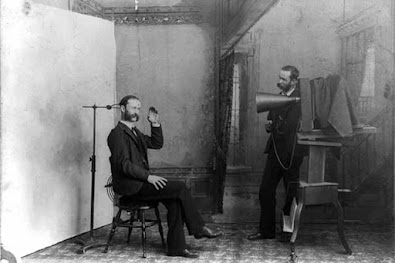by Thomas Scarborough
As this year draws to a close, we soar beyond the turbulent things which have so exercised philosophical hearts and minds, to consider for a moment one of the very abstract and timeless questions of philosophy: ‘things’ and their opposites.
There are, in this world, ‘things’. Or so we suppose. These are also called objects, entities, items, existents, or beings—terms which, by and large, all mean the same thing. The philosopher William Rowe wrote that a ‘thing’ is any item whose existence is acknowledged by a system of ontology, whether that item be particular, universal, abstract, or concrete. The whole universe, even, may be called a ‘thing’. So far so good.
But what is the opposite of a thing? Or what is its contrast, or complement? Nothing, perhaps. But how could there be ‘nothing’? That would seem to be supreme philosophical nonsense. Or suppose that there is a thing which failed to exist? It never came into being. What should we say about that?
Somebody observed that all of our philosophical concepts may be grouped in pairs. Where we find ‘altruism’, we find ‘egoism’; where we find ‘theism’, ‘atheism’; where we find ‘realism’, ‘anti-realism’—and so on, from A to Z. Some do the same with ‘things’. Where there are things, we find nothing. The philosophers Bradley Rettler and Andrew Bailey comment,
‘It’s not clear whether anyone sincerely endorses the thesis that there is nothing, However, it has been defended several times over.’
One could contend that ‘things’ are things in space and time, while nothings are not—like numbers, for instance, or society, or force. Or one could say that things exist, but properties do not. Say, a house exists, but its karma does not. In that case, a great many things ‘do not exist’. Or one could say, as the existentialists do, that one may experience Nothing. But existentialists are afraid of Nothing, jokes the philosopher Simon Blackburn, where there is nothing to be afraid of.
There is one obvious way that we can try to solve the problem, and many have taken this course: namely, first define a ‘thing’. If what chiefly defines a ‘thing’ is that it is, then of course, its opposite must be a thing which is not—perhaps rather, nothing. But is that properly the way to define a thing?
I shall here accept the view, for the sake of argument, that all the things we call things are things: things which exist in space and time (objects), things which happen (events), and things which exist in the mind (concepts). Now suppose that, in order to create all of these things, we need to differentiate them from what the philosopher and psychologist William James called the ‘undifferentiated stream of experience’.
Things have contours. They have definition. But the opposite of things do not. When things lose their contours, they slip back into the undifferentiated stream. Another way of putting it is that, if nothing is not related to the rest of reality—not a word, not a motion, not an entity, not an event—then we artificially separate things when we call them ‘things’. Artificially, because we strip away from them their completeness.
To create a 'nut', we throw away the fruit, and the tree, and the soil, and the air, and the universe. If we included all these things which are essential to the nut's existence, we could never isolate a nut as a thing. Therefore it is simply 'an edible kernel', or something of the sort. We strip away the interconnections or interdependencies, to create something which is self-contained.
The philosopher of science Alan Chalmers describes our reality like this:
‘Many kinds of processes are at work in the world around us, and they are all superimposed on, and interact with, each other ...’
If this is true, then it stands to reason that any ‘thing’ which we cut out from this whole is not wholly itself. 'Nothing' is therefore that which gives birth to things. It is that which exists before we create the contours which create things. In his translation of Lao Tzu, Sam Hamill writes, ‘There was some undifferentiated something here, before heaven and earth.’
The opposite of things, therefore, is a world which is without them—because they have not emerged from it. Nothing was the plastic rattle, before the infant apprehended it. Nothing was the theory, before the scientist formulated it. Nothing was the environment, before it emerged in our minds and hearts. Nothing is all those things which could be, but are not, or are yet to come, because they have no contours.









